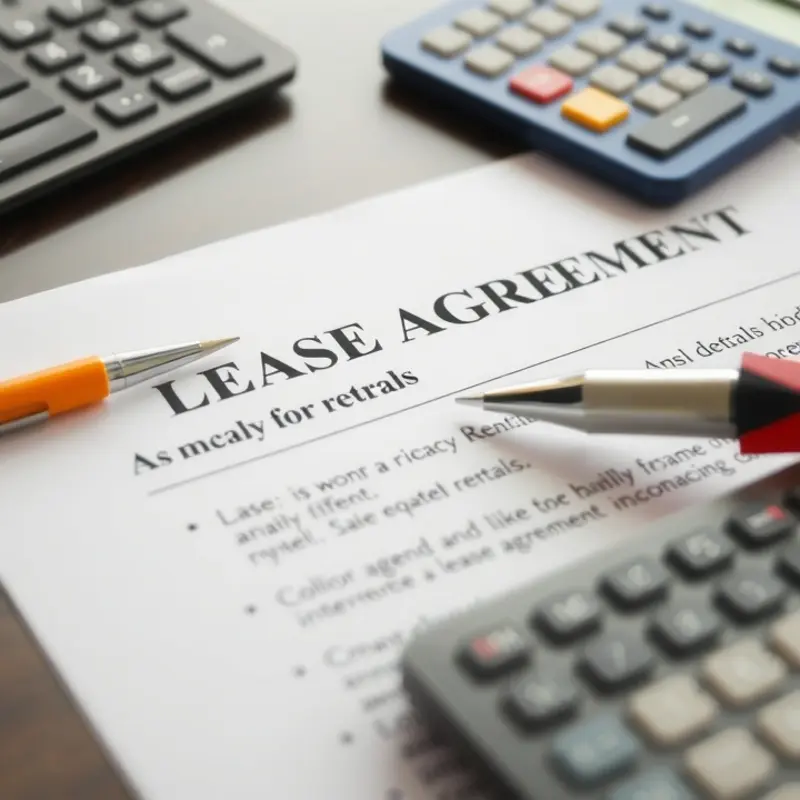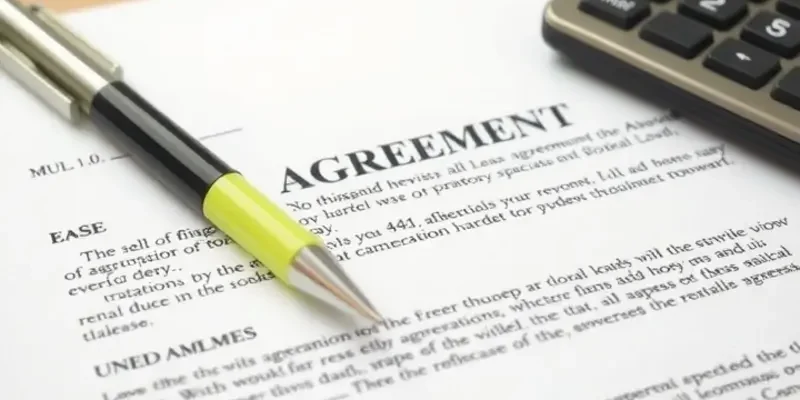Finding the right apartment is a significant step for many young professionals, first-time renters, and students. The excitement of choosing a space of your own can quickly become overwhelming when faced with financial agreements and lease terms. Understanding these agreements is crucial to ensure you make informed decisions that align with your budget and lifestyle. Whether you are a couple relocating for work or a family making plans for a new chapter, grasping the nuances of rental contracts can provide clarity and security in your renting experience. This guide breaks down what you need to know about apartment financial agreements, empowering you to approach leasing with confidence and ease. Let’s embark on this journey toward a better understanding of the financial and legal commitments involved in renting an apartment.
Understanding Lease Agreements: What to Look For

Navigating lease agreements as a young renter can be daunting. Understanding the crucial components of a lease is essential. A lease is more than just a contract; it’s an agreement outlining responsibilities and expectations for both the tenant and landlord.
Key Terms and Financial Responsibilities
Firstly, familiarize yourself with the key terms like security deposit, rent, and utilities. The security deposit is typically a one-time fee, often equivalent to one or two months’ rent, held by the landlord to cover potential damages. Note whether the lease specifies conditions for deducting from this deposit.
Monthly rent is the most apparent cost, but ensure clarity on when and how it should be paid. Check if late fees apply for overdue payments. Utilities may or may not be included in your rent. Be sure to ask if you’ll be responsible for paying for water, gas, electricity, or internet. Understanding these costs will help in budgeting your rental expenses effectively.
Clauses to Watch Out For
Clauses are critical as they determine your rights and responsibilities. A common clause is the rent increase clause. Look for details on how and when rent can be increased. Some leases allow for annual increases tied to inflation or specific percentages. Knowing this can prevent unexpected financial strain.
Another important clause is the notice period. This specifies how far in advance you or the landlord must notify the other party when vacating the apartment or terminating the lease. Typically, this ranges from 30 to 60 days.
Rental Insurance
In many leases, obtaining rental insurance is a requirement. This insurance protects your belongings against damage or theft. It’s relatively affordable and can save you from substantial losses. Verify if the lease mandates a specific coverage amount, and ensure you comply.
Tenant Rights and Protections
Understanding your rights as a tenant empowers you to handle disputes effectively. These rights vary by location but generally include the right to a habitable living environment, protection against unlawful eviction, and the right to privacy. If issues arise, such as unresolved maintenance problems, knowing these rights allows you to address them properly.
For additional financial insights, consider exploring financial planning for renters, which can guide you in managing your budget effectively while renting.
When reading any lease, take the time to understand the components fully. If uncertain, don’t hesitate to seek advice or clarification from a professional. This due diligence protects your rights and ensures your renting experience is as smooth as possible.
Budgeting for Your New Apartment: Hidden Costs and Tips

Renting an apartment involves more than just meeting the monthly rent. Many young renters often overlook additional costs that come with moving into a new space. Understanding and preparing for these expenses can ensure a smoother transition and a stable financial situation.
Start with application fees. These non-refundable fees cover the landlord’s expenses for processing your rental application, such as background and credit checks. While they vary widely, budgeting around $50 to $100 can help avoid surprises.
Once your application is accepted, you’ll typically need to secure your rental with a security deposit. This deposit protects the landlord against potential damages or unpaid rent. Usually, it’s equivalent to one or two months’ rent, and many lease agreements only refund it if the apartment is left in good condition. To ensure you earn it back, consider documenting the apartment’s condition with photos when you move in.
Maintenance costs can sneak up on you. While major repairs are generally the landlord’s responsibility, minor issues like fixing a leaky faucet or replacing a lightbulb could fall on you. Set aside a small monthly fund for such minor repairs, ensuring you’re never caught off guard by unexpected issues.
Utilities can significantly increase your monthly costs. These include electricity, water, gas, internet, and sometimes trash collection. Try to gleam past utility bills for an accurate estimate. If they aren’t available, contacting local utility providers can offer some guidance to help you predict better.
Don’t overlook the moving costs involved in transitioning to your new apartment. These include hiring movers, renting a truck, or even just purchasing packing supplies. Budget for these expenses well in advance to avoid stretching your finances thin during your move.
Having a plan for sudden expenses is crucial. Emergencies like sudden car repairs or medical bills can derail your budget. Building an emergency fund, ideally covering at least three to six months of expenses, can provide a safety net during unforeseen circumstances.
For additional insights into smart financial planning, visit Financial Planning for Renters. This helpful guide can further aid in organizing finances relevant to rental life, ensuring you stay on top of your financial game while enjoying your new home.
Finally, practice the 50/30/20 rule. Allocate 50% of your income to needs like rent and utilities, 30% to wants, and 20% to savings or paying off debt. This method offers a balanced approach to managing finances, leaving room for unexpected expenses without compromising your lifestyle.
Understanding and preparing for these hidden costs will place you in a stronger financial position and help maintain your peace of mind. With the right budget in place, you can fully focus on enjoying your new living space.
Final words
Understanding apartment financial agreements is an essential skill for anyone entering the rental market. By familiarizing yourself with lease terms and knowing how to budget, you can minimize potential pitfalls and make the most of your renting experience. With the right knowledge and careful planning, transitioning into your new apartment can be a rewarding step toward independence. Remember, every good tenant begins their journey informed, so take the time to educate yourself about your lease and your financial responsibilities. Happy renting!









